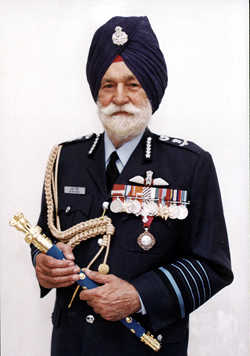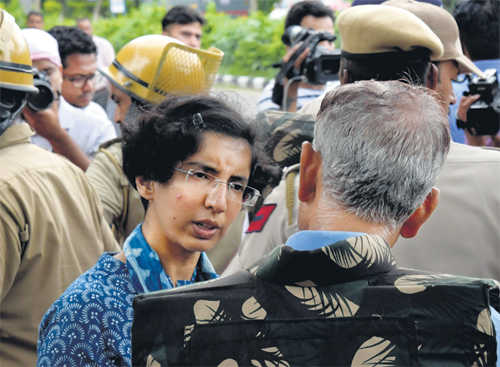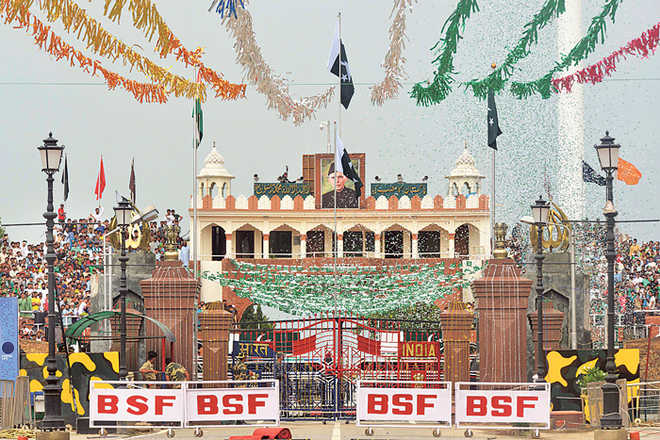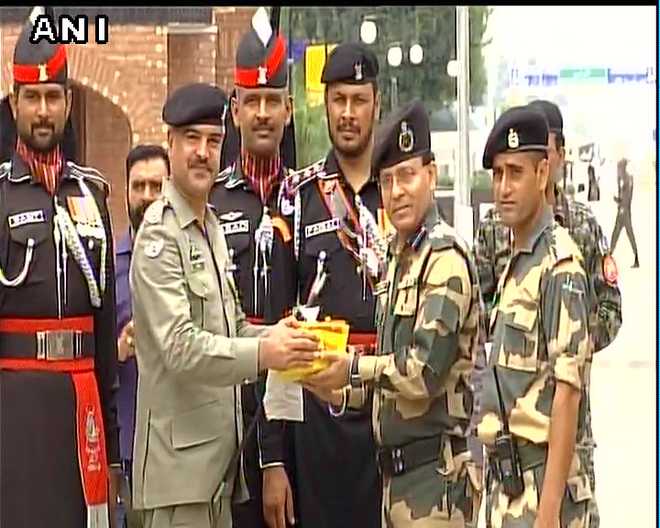Ex-servicemen are engulfed by a smouldering disconnect following the inept handling of the OROP issue by the government. In their sunset years, they are being made to feel as if they are a spent force.
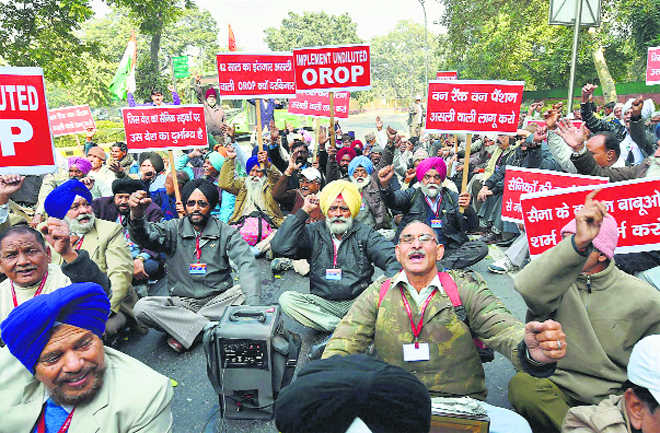
Veteran servicemen at a protest seeking OROP in New Delhi. PTI
Col Dabby S De mello (Retd)In times of war and not before,
God and soldier we adore.
But in times of peace and all things righted,
God is forgotten and the soldier slighted.
—Rudyard KiplingManohar Parrikar apparently is an ardent fan of the legendry poet Rudyard Kipling. Within a month of his swearing in as Raksha Mantri, he has revealed to the country that the nation no more holds the defence services in high esteem. His reason: “These days, people don’t look up to the military in high esteem since there has been no war for so many years.”True, there has been no general war, but just count the horrendous losses suffered in the interim years, battling an insurgency and terrorism, largely the creation of the failed political ideologies, and at times open support to anti-nationals. Coming, therefore, from a Raksha Mantri whose mandate is to uphold the morale of the three services, this statement was most shocking. Parrikar is neither rustic nor illiterate. Nobody becomes an IITian with limited knowledge. All the more reason his disparaging remarks are repugnant. But by saying so, did he bare his party’s mindset towards the faujis or that of the collective conscience of the Indians as a whole? The revelation, true or false, by the Raksha Mantri, spoke volumes about the way Defence Services will be treated by the NDA (read BJP). The entire defence fraternity was shocked and felt angry.September 15, 2013, remains a sad day for the exservicemen (ESM) for, on that day, they got carried away by the rhetoric and honeyed words of Narendra Modi, the NDA’s prime-ministerial candidate, during the ESM rally at Rewari. Having seen their stock lowered by the earlier governments, they, rightly or wrongly, allowed themselves to be considered a vote bank by the BJP, a decision they now regret. In his election bhashan, Modi promised to honour the long-pending demand of One Rank One Pension (OROP) in its entirety and true essence, if NDA was voted to power. That it was voted to power with an unexpected majority was also due to the faujis voting en bloc for the BJP, a fact it should remember. Faujis, for whom an oral commitment is sacrosanct, felt utterly cheated and decided to take an unprecedented step — peacefully protest throughout the country with Jantar Mantar as the pivot. To press home their rightful demands, the ESM, mostly in their twilight years, have been sitting on a relay hunger strike on a footpath near Jantar Mantar non-stop for more than two years. How disgracefully can the government and its leaders behave with the faujis is a new and bitter experience for a disciplined force. And they are angry.
ESM’s Tiananmen moment
Early morning of August 14, 2015, was the ESM’s Tiananmen moment, when the might of the state pitted itself against peaceful demonstrators; young policemen were allowed to manhandle grey-haired retired soldiers (many of them war-decorated ones) and widows engaged in a peaceful and permitted protest near Jantar Mantar. No one from the government apologised for this shameful behaviour. The faujis have not forgotten that day, and are angry.To break the protest movement, the government even attempted to create an officer-jawan divide by maliciously goading another set of retired jawans to set up an alternate OROP stage a few feet away from the main protest tent at Jantar Mantar. From there, the misguided jawans denounced their officers by reading out the script handed out to them; what sort of government is this that uses such lowdown methods against its own veterans? Fortunately, this misguided lot soon realised its folly and joined the main protest, but the collateral damage it did to the strong officer-man bond which sustains our military, is frightening; a damage which can seriously impair the fighting abilities of our defence forces. The entire fauji fraternity took no time to fathom the design of the establishment and is angry. Finding far too many anomalies, some very serious, in the notification issued on OROP, the ESM rejected it outright and conveyed it in no uncertain terms to the government. To address the anomalies, the government on December 14, 2015 constituted a one-man judicial committee comprising a retired chief justice and asked for his recommendations within six months, a job which could be done within a month. After five months, the government maliciously extended its term by six months, apparently to tire out the protesting ESM. The honourable judge finally submitted his report on October 26, 2016, but more than nine months later, the report has not been made public. Maybe the judge was convinced about the genuineness of OROP demands and has recommended in favour of the ESM. If that be so, implementation of his recommendations can be a win-win situation for the government as well as for ESM. But the govt hasn’t budged from its hardened stand and as a result, the faujis are angry.
Babus vs faujis
The establishment continues to pit the bureaucracy against the defence services, resulting in systematic degradation of the services. An undesirable and unhealthy civil-military equation exists today. The faujis are not oblivious to the step-brotherly treatment meted out to them vis-a-vis the bureaucrats and are very angry.Due to the inept handling of the OROP issue, and indifferent attitude of the establishment on many other matters, including the warrant of precedence, a smouldering disconnect has engulfed these men who once were sentinels of our borders during their prime years, but are now considered a dispensable and a spent force. Their collective protest has been on for 27 months, but none from the establishment has bothered to discuss a way out with them. The faujis have started feeling that they are being treated unfairly and are angry. By now, the Pradhan Sevak knows too well that the one-time raise given to the military pensioners is not the OROP approved by the two parliamentary committees; yet he mocks the ESM by repeatedly misinforming the countrymen from just about any platform, “Hamari govt ne fauji bhaiyon ko ek rank-ek pension de di hai!” What an emotional assault on the naïve veterans! No fauji, whether in or out of uniform, remains emotionally unmolested by the government’s highhandedness and indifference, and is angry.There are more counts on which the faujis are angry, the manifestations of which have not gone unnoticed by the BJP thinktank. Their appeasement has commenced and is gathering momentum to bring them back, yet again in good humour. But there is a saying that you cannot fool everyone all the time. The vote bank it created in 2013, and successfully milked in 2014, can’t be left unamused. 2019 is not far and 4.91 crore voters make a formidable electorate. All media is put in high gear to woo the ESM by cosmetic gestures. Courtesy the BJP, faujis are no more apolitical or gullible as in 2014. They know their vote will make a difference, like it did in 2014. The faujis are angry and not without reason. Let us not forget that this patriotic lot of Indians also includes the soldiers in uniform guarding the borders in most adverse conditions. Populist measures of the state to keep their morale to the optimum will never be enough. The cumulative anger of these forgotten soldiers needs to be addressed the soonest in national interest. In military parlance, it is the captain of the ship that must bear responsibility for the errors of his command, no matter who lower in the chain, may have been responsible. Whether by design or by default (heeding to biased advice from biased advisers), whatever, the Pradhan Sevak is responsible for the current state of affairs. PS. Let the statesmanship prevail over ego and faujis be also taken along in the Sab ka Saath venture. Far too many elections have been won on the name of the fauj, faujis and “surgical strikes”. It’s high time the BJP won their hearts by giving the ESM their rightful due. By staging a countrywide peaceful protest, they are only reminding the Pradhan Sevak to fulfil the promise he made to them at Rewari. Can the BJP risk antagonising this large vote bank, if their promises are not fulfilled? I am not too sure. Jai Hind. Jai Hind ki Sena. JaiHind ki Bhootpoorv Sena.



















































